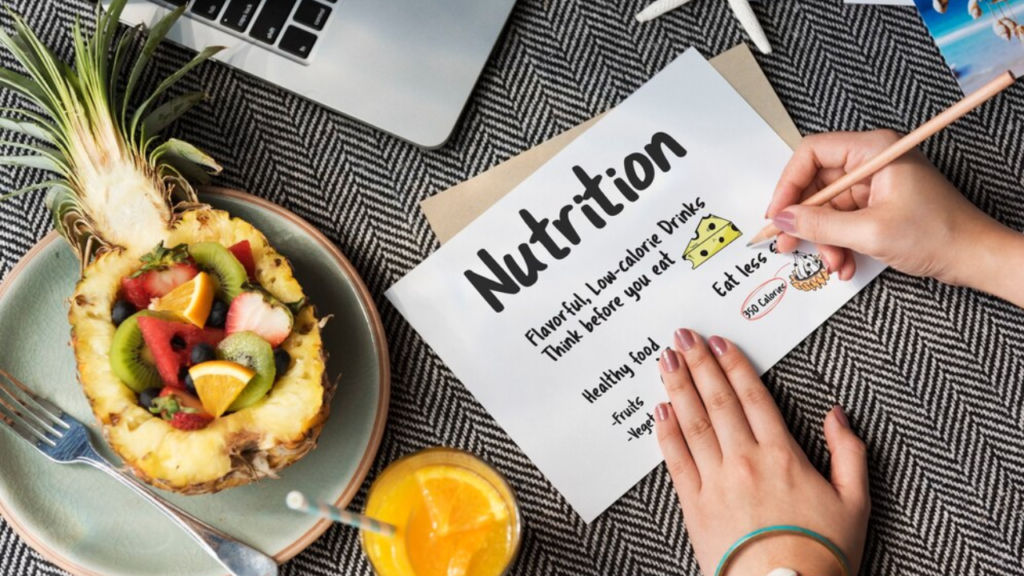In the age of information overload, it’s easy to get overwhelmed by conflicting dietary advice. We’ve all heard various nutrition myths that have made their rounds in the media, from the latest superfoods to fad diets that promise instant weight loss. In this blog, we aim to debunk some of these nutrition myths and provide evidence-based insights into what truly constitutes a healthy diet.\Myth 1: Carbs Are the Enemy.
Myth 1: Carbs Are the Enemy
One of the most persistent nutrition myths is the vilification of carbohydrates. The truth is that carbohydrates are a primary source of energy for the body. Opt for complex, whole-grain carbs like quinoa, brown rice, and whole wheat bread, and limit refined carbs like white bread and sugary snacks.
Myth 2: All Fats Are Bad
Not all fats are created equal. While trans fats and saturated fats should be limited, unsaturated fats, like those found in avocados, nuts, and olive oil, are essential for overall health. They can help lower bad cholesterol levels and reduce the risk of heart disease
Myth 3: The More Protein, the Better
Excessive protein intake doesn’t necessarily lead to better health or muscle gain. While protein is essential, it’s important to consume it in appropriate amounts. Too much protein can strain the kidneys and may not be utilized efficiently by the body.
Myth 4: Gluten-Free Equals Healthier
For people with celiac disease or gluten sensitivity, a gluten-free diet is crucial. However, for those without these conditions, there’s no inherent health benefit in avoiding gluten. Gluten-free products can sometimes be lower in nutrients and higher in sugar and unhealthy fats.
Myth 5: All Organic Food Is Superior
While organic food has many advantages, it’s not always nutritionally superior to conventionally grown food. The decision to buy organic should consider factors like environmental impact, pesticide residue, and personal preferences rather than solely for nutritional reasons.
Myth 6: Eating After 8 PM Leads to Weight Gain
The timing of your meals matters less than the total daily calorie intake and the quality of the food you consume. Late-night eating can contribute to weight gain, but only if it leads to overeating or poor food choices.
Myth 7: Detox Diets Eliminate Toxins
The body has its built-in detoxification systems, primarily the liver and kidneys. Most “detox” diets or cleanses lack scientific support and can do more harm than good. A balanced diet that includes plenty of fruits and vegetables naturally supports these processes.
Myth 8: Snacking Ruins Your Diet
Healthy snacking can be a part of a balanced diet. Choosing nutrient-rich snacks like nuts, yogurt, or fruit can help control hunger and maintain steady energy levels
Myth 9: You Can Spot-Reduce Fat
No specific exercise or diet targets fat loss in a particular area of your body. Fat reduction occurs gradually throughout the body when you maintain a caloric deficit and engage in regular physical activity.
Myth 10: Sugar from Fruit Is Unhealthy
The sugar in whole fruits comes with fiber, vitamins, and antioxidants. It’s different from added sugars found in processed foods, which can be detrimental to health. Enjoy whole fruits as part of a balanced diet.
Conclusion
The world of nutrition is rife with misinformation and myths. It’s important to base your dietary choices on credible, evidence-based information. A balanced diet that includes a variety of foods, in appropriate portions, is key to good health. Remember that there is no one-size-fits-all approach to nutrition, so it’s a good idea to consult with a healthcare professional or registered dietitian for personalized guidance. By separating fact from fiction, you can make informed decisions about your diet and lead a healthier, more fulfilling life.



